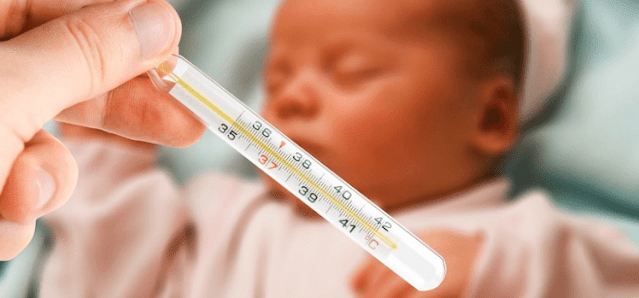Tips to Take Care of a Newborn: A Guide for Parents
Parenthood is the beginning of a new adventure. In this beautiful journey, while parenting and raising a newborn child, parents will also learn more about themselves than they ever thought they would. You will experience limitless love, and you will be put to the test in some intensely emotional situations. You might experience a wide range of emotions during the newborn stage. Undoubtedly, raising a newborn is a difficult job. Since your baby will not come with a parenting manual, we have put together some useful advice to help you settle into your new role as a parent.
In this blog, we will guide the new parents with tips on how to care for their child, including how to handle the newborn baby, how to bathe them, feed them, and more. To make this post enriching, we have gathered information from Dr. Promilla Butani, a well-known baby pediatrician in Delhi. Keep reading to learn these amazing tips and make your parenting easy!
Tips to Handle the Baby
Newborns are very fragile. Here are a few basics for parents to remember:
- Prior to touching your infant, wash your hands or use hand sanitizer. Newborns are susceptible to infections because they do not yet have a robust immune system. Also, ensure that all those who come into contact with your baby have clean hands.
- Support the head and neck of your infant. When placing your infant down or carrying them upright, support their head.
- Do not ever shake your child. Shaking can cause bleeding in the brain. Do not shake your baby to wake them up. Instead, gently blow on a baby's cheek or tickle their feet.
- Do not play rough with newborns by throwing them in the air or jiggling them on your knee.
Bathing Tips for a Newborn Baby
Sponge baths a baby in their initial phase. This can be accomplished by gently washing your baby's head, body, and diaper area with a cloth or sponge dipped into warm water. Until your baby's umbilical cord falls off on its own, giving them a sponge bath is the safest option.
Tips to Feed the Baby
You might be wondering how often to feed your newborn. It is generally advised to feed babies on demand or whenever they appear hungry. When your baby is hungry, they may cry, put their fingers in their mouths, or make sucking noises. A newborn must be fed every two to three hours.
If a breastfed baby appears content, poops multiple times a day, has about six wet diapers, sleeps well, or consistently gains weight, then they are most likely getting enough to eat. Another effective method for determining whether a breastfed baby is getting milk is to determine if your breasts feel full before feeding and less full after feeding. During feedings, babies frequently swallow air, which can make them fussy. Always burp your baby to help prevent this.
Tips to Give Baby a Good Sleep
Newborns sleep for up to sixteen hours every night. Usually, they sleep for two to four hours at a time. When they are three months old, most babies sleep through the night (for six to eight hours), but if yours doesn't, it is not a reason to worry. Babies experience their own sleep cycles and patterns just like adults do.
Babies safe sleeping practices include:
- Avoid putting bumpers, stuffed animals, blankets, quilts, sheepskins, pillows, or other items in the crib or bassinet as they can suffocate a baby.
- From night to night, move your baby's head in different directions (right, left, and so on). By doing this, one side of the head is kept from becoming flattened.
Tips to Care for the Umbilical Cord and Circumcision Area
- Umbilical Cord Care
It usually takes ten days to three weeks for the cord stump to dry up and fall off after you clean the area around it with plain water and blot dry. As the area heals and the stump falls off, avoid letting the area around the belly button soak in water. The cord stump will naturally turn from yellow to brown or black before falling off. If there is discharge, a bad odor, or the area appears red, give your doctor a call.
Tips to Tackle Newborn’s Fever
Particularly in a newborn, fever can indicate a serious medical condition. If your baby's rectal temperature reaches 100.4 F (or 101 F if they are three months old or older), call a pediatrician. Regardless of your baby's temperature, keep an eye out for additional symptoms of illness. If your baby is acting strangely, not eating or drinking, or appears to be in pain, get in touch with a medical professional.
When to Get a Pediatrician's Help
When a newborn has a fever, it is a good idea to have them checked out by a doctor. Dr. Promilla Butani, the best child specialist in Delhi, suggests the following signs and symptoms in infants that should be taken seriously:
- Demonstrates alterations in their eating habits, such as a refusal to breastfeed
- Has a lot of mucus or watery stools
- Is drowsy, unresponsive, or sleepy all the time
- Is excessively agitated and weeps for longer periods of time than usual
- Has a rash that is red or swollen anywhere on their body
- Has swelling or redness at the base of their umbilical cord
- Shows signs of constipation, such as straining or discomfort when moving their bowels
- Has a bloated belly or throws up (rather than spitting)
Conclusion
Having a newborn baby is challenging and tiring for parents. Hope these tips will help the new parents take care of their child and they will cherish these moments with the baby instead of worrying about every little thing. For better guidance and in emergencies, it is always advisable for the parents to stay in touch with a pediatrician.
If one is looking for the best child specialist doctor in Delhi, they may consult with Dr. Promilla Butani, a well known pediatrician. She has nearly fifty years of experience and is an expert in a wide range of pediatric healthcare services.





Comments
Post a Comment